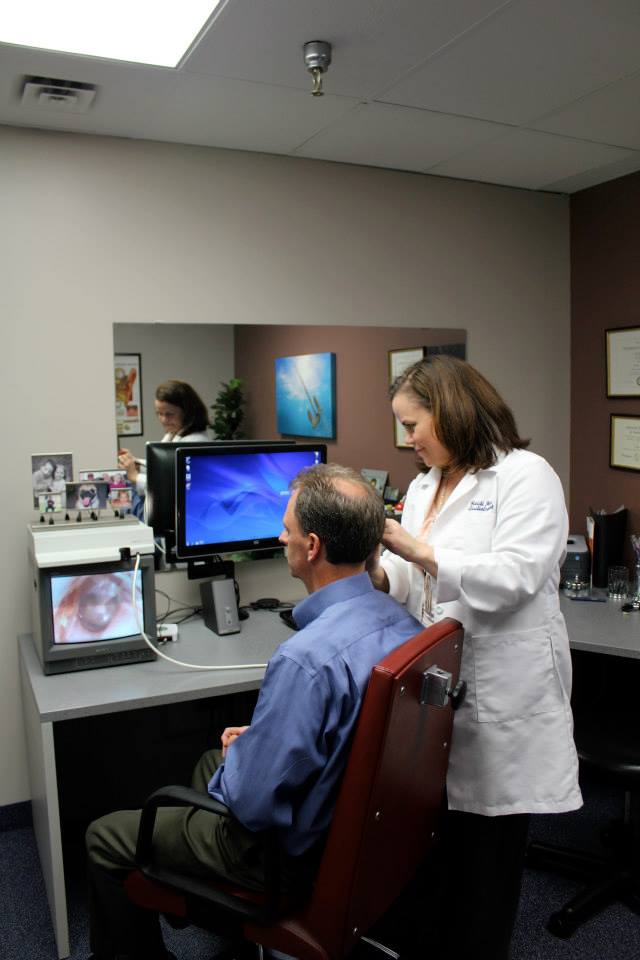
Pressure in Ears
Feeling pressure in your ears can be a very uncomfortable sensation. It might feel like one or both of your ears are plugged up or clogged, and the feeling can range from mild to severe.
The causes of pressure in ear are varied. Some common reasons for experiencing ear pressure include changes in altitude, having a sinus infection, and even some types of earwax buildup.
Oftentimes, pressure in ear symptoms go away on its own but if you experience this problem frequently, it is important that you see a doctor who may be able to prescribe medication that will help relieve the symptoms associated with it.
Why do you feel pressure in your ears?
The pressure in your middle ear is higher than the pressure in the outside environment. The eustachian tubes, which are small tubes that regulate this difference, go from your middle ear to just below your nose. They open and close to let air flow through if you yawn or chew gum so they don’t get blocked and give you a feeling of discomfort like stuffiness or fullness that can last for days.
In short, your ears naturally equalize when you do things like swallow or yawn. But if your eustachian tubes become narrowed or blocked, you may feel ear pressure that doesn’t go away on its own.
Common causes of pressure in your ears
Change in altitude Altitude changes can be tough on your ears, leading to things like ear pain or headaches. One of the most common ways altitude affects our bodies is through pressure changes in your eustachian tubes.
Flying in an airplane, driving up the mountains, or riding up an elevator all have one thing in common. When altitude changes rapidly your eustachian tubes may not have time to adapt and can become blocked.
Sinusitis Sinusitis is a painful condition that occurs when your sinuses, the hollow spaces inside your face, become inflamed. The swelling and pressure can cause you to feel fullness or pain in your ears.
In some cases, it’s caused by bacteria as well as viruses. When you have sinusitis symptoms, such as congestion or inflammation of the mucous lining inside the nose (called rhinitis) coupled with headache and fever, see a doctor promptly for treatment because they may be signs of bacterial infection.
Ear Infections Water is a breeding ground for bacteria and viruses, which is why it’s important to sanitize your ears after being in the water. A middle ear infection can occur when the Eustachian tube isn’t draining properly, and this leads to fluid buildup that promotes the growth of infection-causing microorganisms. When you submerge underwater with swimming or diving, some of these organisms can be pushed into your outer ear canal. This is what causes swimmer’s ear—an outer-ear infection that typically starts out as painless itching but may also lead to discharge and a feeling of fullness in the affected area.
Colds An ear infection, like the common cold, can be easily spread. The illness is caused by a virus or bacteria that enters through the lining of your nose and throat. When you’re sick with an ear infection, you may also experience ear pressure because fluid builds up in your middle ears to combat the infection. Another type of middle-ear condition would be otitis media, which occurs when there isn’t enough drainage from your eustachian tubes due to inflammation. This causes fluid buildup and promotes germs to grow even more rapidly than they normally could.
Ear infections come in all shapes and sizes. So, if you’re feeling any of these symptoms, it’s time to go see a doctor: ear pain that doesn’t go away after 3 days or more; ear pressure and fluid draining from the ear; hearing loss.
Allergies Cold weather can wreak havoc on our respiratory systems, causing us to struggle with congestion and breathing. In some cases, colds can cause an allergic reaction known as “allergic rhinitis.” This condition causes inflammation of the nasal passages, which leads to mucus buildup. If this is not treated, it can also affect the eustachian tubes in your ears—which will make them feel blocked or make you experience pressure in ear.
Earwax Buildup Earwax is the natural protection for our ears. Normally, earwax flows down the canal and out of your ear, protecting your sensitive inner parts. When there’s an excess build-up of wax, ear pressure can occur because it blocks the canal.
Not all people produce as much earwax as others do. Some people are more prone to buildup in their ears due to various external factors such as allergies or medication use which could lead to a higher risk of developing problems with hearing. This could happen soon after having a baby or even during pregnancy if you’re already suffering from high levels of wax buildup before conception.
Presence of foreign object A foreign object stuck in your ear can cause pain and pressure. This is especially common in children, who sometimes put objects into their ears, noses, or mouths.
The Sinus-Ear Connection
Your sinuses and ears are connected inside your head. So sinus congestion and stuffiness can affect the pressure in your ears. Treating the congestion may help, but if you don’t know what is causing the clogged sinuses or how to treat them, it might be worth consulting a doctor to figure out why you have this condition.
How to relieve the pressure in your ears
The treatment for pressure in ear will greatly depend on what’s causing it, hence, there is a need to get to the bottom of what’s behind it.
For pressure in ear caused by altitude changes, simple yawning, swallowing or opening of your mouth can alleviate it. OTC decongestants or nasal spray may also help.
For wax build up, it’s worth noting that earwax is a natural by-product of the ear canal’s protective mechanism. But, for excessive wax, it can be removed using solutions such as mineral oil or hydrogen peroxide, or with special tools that are only to be used under the supervision of an audiologist.
Pressure in ear: When to see a doctor
If you have any of the symptoms below or suspect that something may be wrong, making an appointment with a doctor is the best course of action.
- prolonged feeling of pressure in ear
- pain, fever, dizziness, or bleeding from your ear
- there’s a foreign object that cannot be removed using at-home first aid techniques
Hearing Health Clinic, Osseo MN
Pressure in ear is a common condition because of altitude changes, allergies, or colds. You can usually treat the causes at home through swallowing to “pop” your ears or by taking OTC medications. However, if you find that your symptoms are persisting or getting worse with at-home treatment, it’s high time to see a doctor.
If you are in Osseo, MN and need to go to a hearing clinic for pressure in ear and other hearing-related concerns, visit us at Hearing Health Clinic. Call us now for an appointment.

